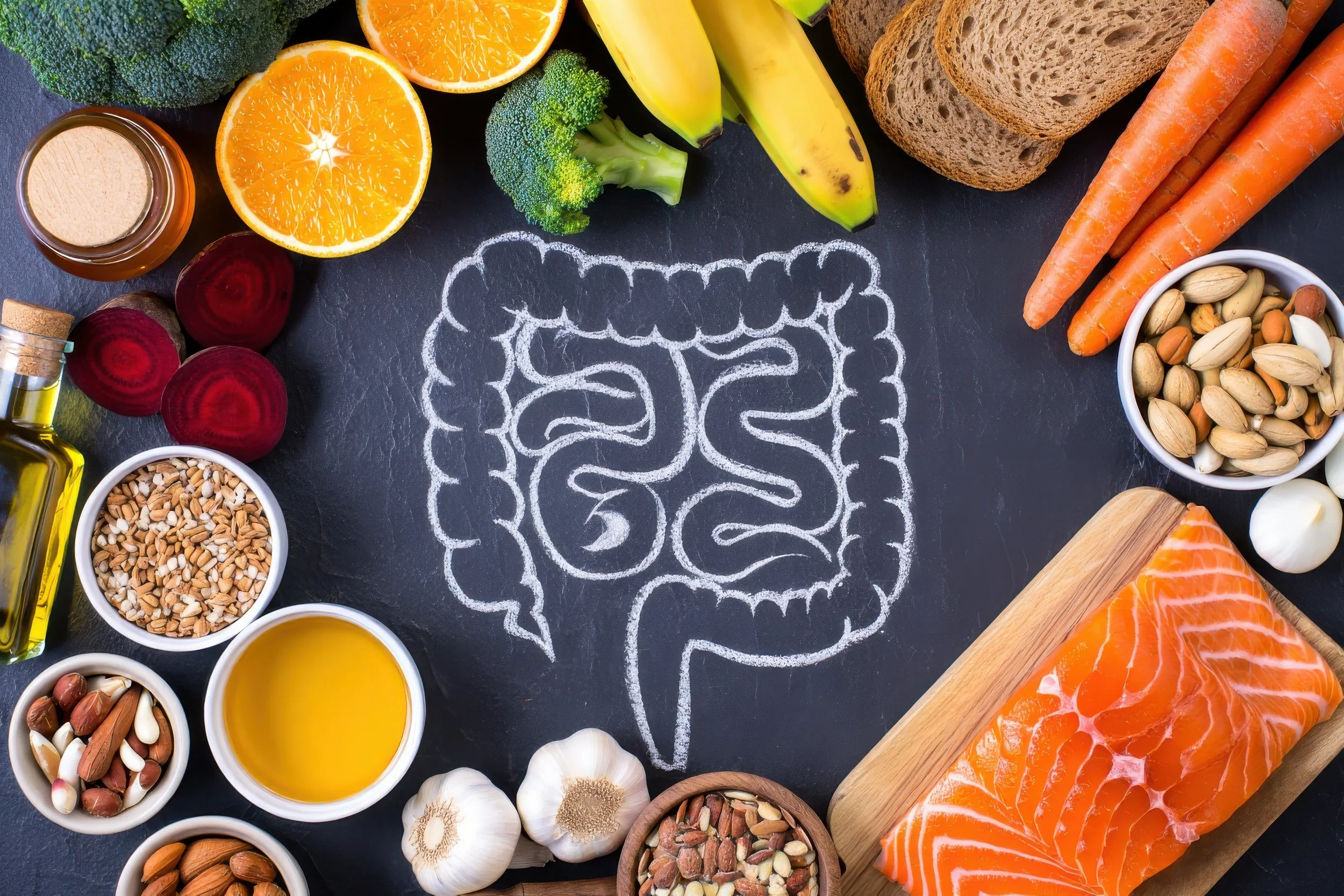Gut-Friendly Foods to Support Digestive Health
Gut-Friendly Foods to Support Digestive Health
A healthy gut does more than just keep digestion running smoothly—it plays a vital role in immunity, mental clarity, and even mood regulation. Supporting your gut starts with what you put on your plate. By focusing on fiber-rich, fermented, and anti-inflammatory foods, you can foster a balanced microbiome and reduce digestive discomfort (but be sure to talk to your doctor before starting any new diet or exercise regime).
Fiber is essential for gut health because it helps regulate bowel movements and feeds beneficial gut bacteria. There are two types of fiber: soluble, which dissolves in water and forms a gel-like substance, and insoluble, which adds bulk to stool and helps food pass through the digestive system more easily. Whole grains, legumes, fruits, and vegetables are excellent sources of fiber. Foods like oats, lentils, apples, and broccoli promote microbial diversity, which is associated with better digestive and overall health.[1] Aim for a variety of colorful plants in your diet to ensure you are getting a broad spectrum of fiber and phytonutrients.
Fermented foods are rich in probiotics—live microorganisms that contribute to a healthy gut microbiota. Common probiotic foods include yogurt with active cultures, kefir, sauerkraut, kimchi, miso, and kombucha. Research shows that regular consumption of fermented foods may help restore balance to gut bacteria, especially after antibiotic use or digestive upset.[2] These foods may also reduce symptoms of bloating, gas, and constipation by increasing the population of beneficial microbes in the gut.
Chronic inflammation can disrupt the gut lining and contribute to issues like leaky gut syndrome, irritable bowel syndrome (IBS), and other gastrointestinal problems. To combat inflammation, include foods rich in omega-3 fatty acids, antioxidants, and polyphenols. Fatty fish like salmon, chia seeds, walnuts, turmeric, ginger, and berries all possess anti-inflammatory properties that can soothe the digestive tract and support gut barrier function.[3] Green tea, olive oil, and dark leafy greens also offer potent anti-inflammatory effects.
While it is important to add beneficial foods, it is equally vital to limit those that negatively impact gut health. Highly processed foods, added sugars, and excessive alcohol can harm the microbiome and promote inflammation and artificial sweeteners like sucralose and aspartame have also been linked to gut imbalance.[4] Instead of eliminating everything at once, consider making small, sustainable swaps—such as replacing sugary snacks with fruit or switching from soda to kombucha or herbal tea. And don’t forget the importance of hydration and stress management in maintaining a healthy digestive system. Water helps fiber do its job, and managing stress through practices like mindfulness or yoga can positively influence the gut-brain connection.[5]
By incorporating fiber-rich produce, probiotic-packed fermented foods, and anti-inflammatory staples into your diet, you can nourish your digestive system from the inside out. Your gut is home to trillions of microorganisms working hard for your health—feed them well, and they will return the favor.
[1] Slavin, Joanne. “Dietary Fiber and Body Weight.” Nutrition, vol. 21, no. 3, 2005, pp. 411–418.
[2] Marco, Maria L., et al. “Health Benefits of Fermented Foods: Microbiota and Beyond.” Current Opinion in Biotechnology, vol. 44, 2017, pp. 94–102.
[3] Calder, Philip C. “Omega-3 Fatty Acids and Inflammatory Processes: From Molecules to Man.” Biochemical Society Transactions, vol. 45, no. 5, 2017, pp. 1105–1115.
[4] Suez, Jotham, et al. “Artificial Sweeteners Induce Glucose Intolerance by Altering the Gut Microbiota.” Nature, vol. 514, 2014, pp. 181–186.
[5] Mayer, Emeran A., et al. “Gut/Brain Axis and the Microbiota.” The Journal of Clinical Investigation, vol. 125, no. 3, 2015, pp. 926–938.

